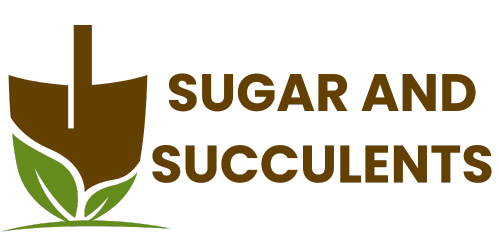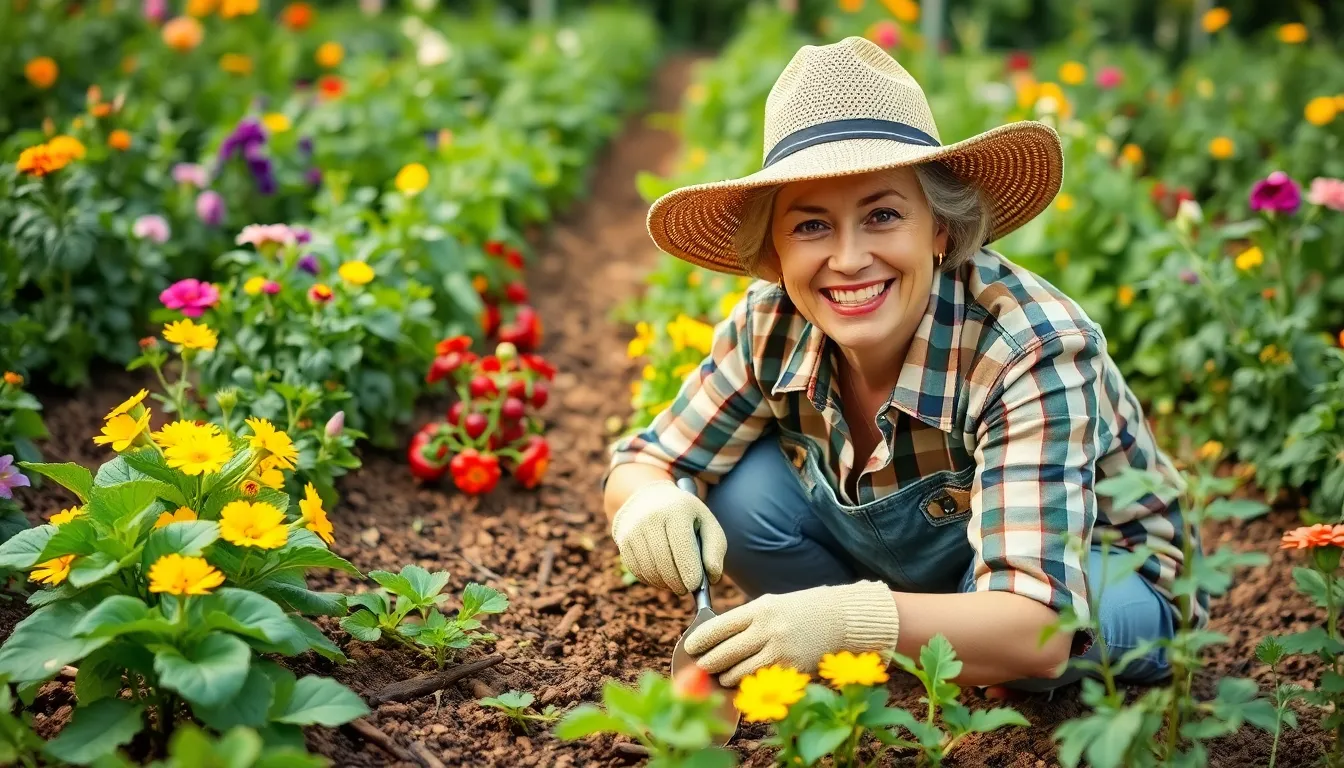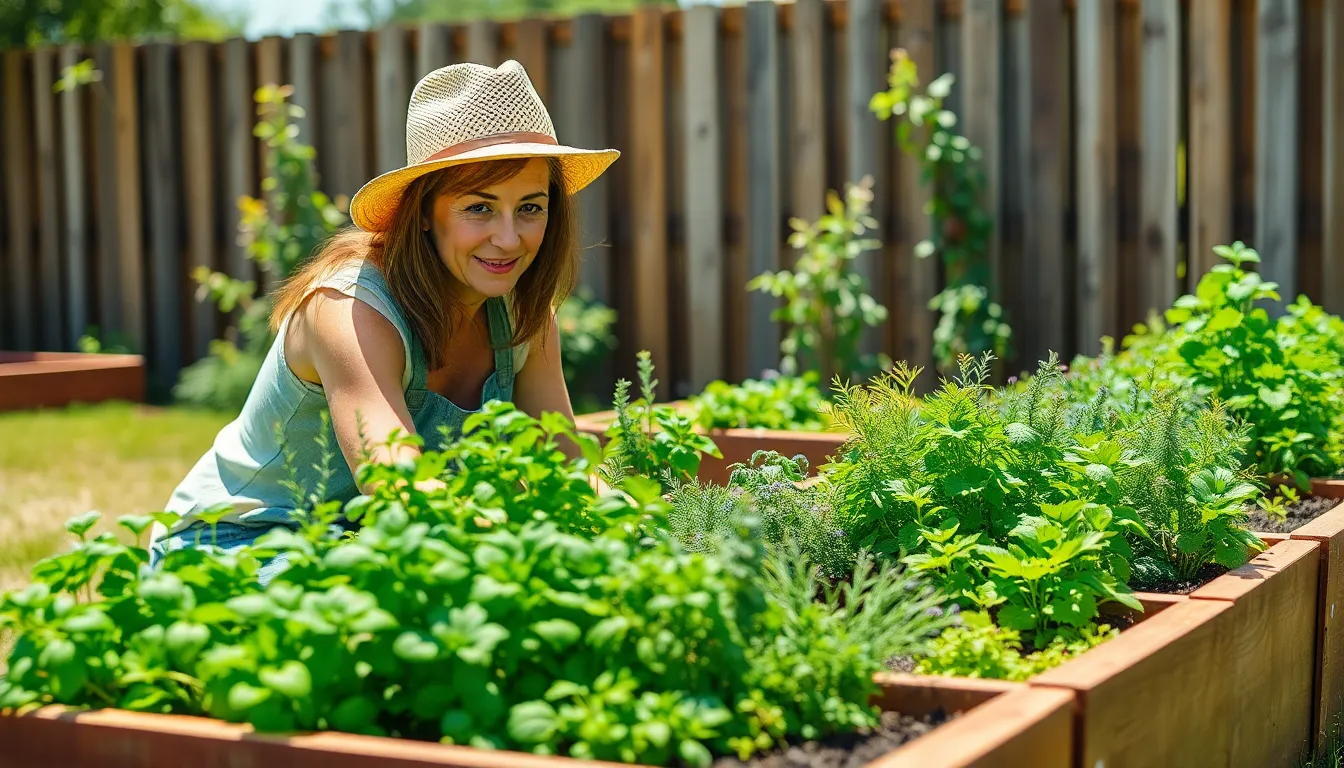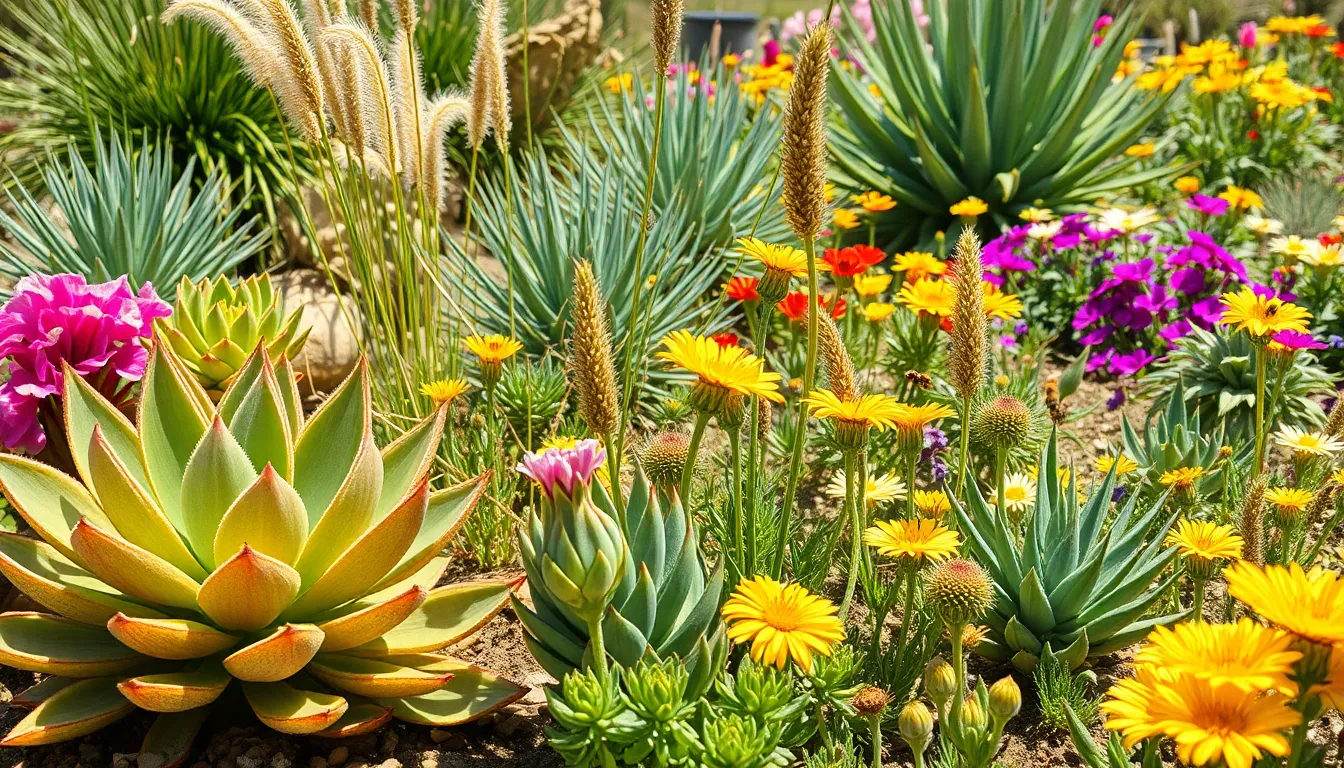In a world increasingly focused on sustainability, organic gardening has become a popular choice for both seasoned green thumbs and newcomers alike. With the right guidance, anyone can transform their backyard into a thriving ecosystem filled with vibrant plants and healthy produce. Organic gardening books serve as invaluable resources, offering insights into techniques, plant selection, and pest management that promote a chemical-free approach to gardening.
These books not only provide practical advice but also inspire a deeper connection to nature. They empower gardeners to cultivate their own food while fostering biodiversity and environmental health. Whether someone is looking to start a small herb garden or embark on a larger vegetable plot, the wealth of knowledge found in organic gardening literature can make all the difference in achieving a successful and rewarding gardening experience.
Table of Contents
ToggleImportance Of Organic Gardening Books
Organic gardening books serve as essential resources for gardeners at all skill levels. These books offer comprehensive guidance on sustainable gardening practices, ensuring successful cultivation without synthetic chemicals.
- Technique Mastery: Organic gardening books provide detailed instructions on techniques like crop rotation, companion planting, and soil health. Mastering these techniques enables gardeners to optimize their yields.
- Plant Selection: Books often include lists of suitable plants for organic gardens, highlighting varieties that thrive in specific climates. Making informed choices about plant selection promotes healthy growth and minimizes pest issues.
- Pest Management: They cover natural pest management strategies, including the use of beneficial insects and organic sprays. Effective pest control methods reduce reliance on harmful chemicals, fostering biodiversity.
- Environmental Impact: These resources emphasize the environmental benefits of organic gardening. Adopting sustainable practices helps preserve ecosystems and promotes soil health, thus contributing to a healthier planet.
- Connection to Nature: Engaging with organic gardening books strengthens the relationship between gardeners and their environment. Understanding the interconnectedness of plants, soil, and wildlife enhances the overall gardening experience.
- Community Knowledge: Many authors share local experiences and case studies, creating a sense of community among readers. Learning from the successes and challenges of others can inspire and motivate gardeners.
- Resource Accessibility: Organic gardening books often serve as a valuable reference point throughout the gardening season. They offer ongoing support, whether in planning, planting, or troubleshooting garden issues.
Utilizing organic gardening books proves beneficial in achieving sustainable gardening goals, leading to improved health, better productivity, and a deeper appreciation for nature.
Types Of Organic Gardening Books
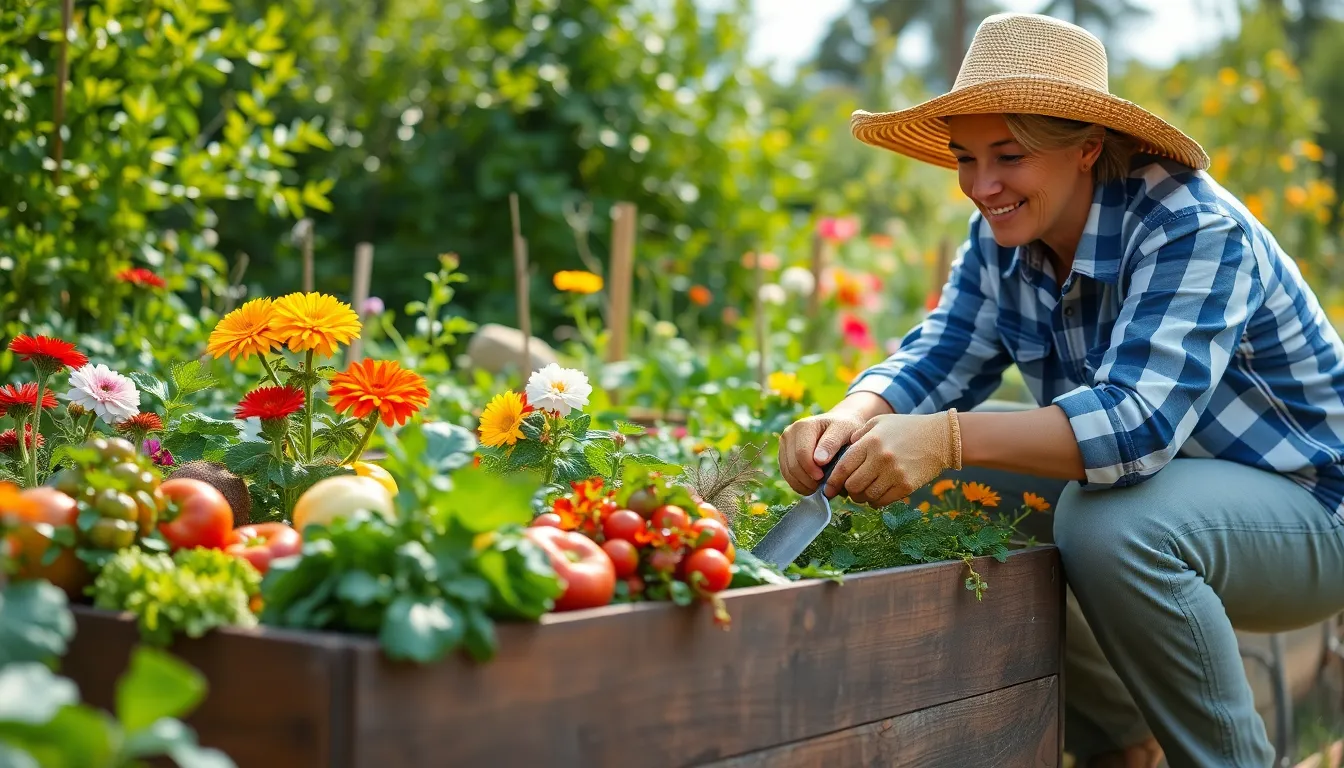
Organic gardening books vary in focus and depth, catering to different levels of expertise and specific interests. These resources can enhance gardening skills through structured guidance and practical insights.
Beginner Guides
Beginner guides introduce foundational concepts for novice gardeners. These books cover essential topics such as soil preparation, basic planting techniques, and easy-to-grow plant varieties. Authors often include step-by-step instructions, making organic practices accessible and uncomplicated. Example resources may offer seasonal planting calendars and lists of pest-resistant crops best suited for newcomers.
Advanced Techniques
Advanced techniques books delve into specialized methods and complex gardening practices. They often focus on intricate topics like permaculture design, soil microbiology, and biodiversity enhancement. Readers encounter detailed discussions on crop rotation strategies and advanced pest management systems that utilize beneficial insects and organic fertilizers. Practical applications like creating compost systems or designing raised beds may also be explored, providing seasoned gardeners with advanced tools to optimize their organic growing systems.
Top Organic Gardening Books To Consider
Organic gardening books offer a wealth of knowledge and cater to various levels of expertise. Below are some notable classic titles and recent releases that provide valuable insights for organic gardeners.
Classic Titles
- “The Organic Garden Book” by Ann Whitman
This classic guide emphasizes organic practices, including composting and natural pest control. Its detailed illustrations help beginners visualize techniques.
- “Rodale’s Ultimate Encyclopedia of Organic Gardening” edited by Fern Marshall Bradley
A comprehensive reference featuring thorough information on organic methods, soil health, and pest management, making it suitable for all gardeners.
- “Gaia’s Garden: A Guide to Home-Scale Permaculture” by Toby Hemenway
This influential title introduces permaculture principles, focusing on sustainable design for urban gardens. Its practical approach inspires a deeper understanding of ecosystem interrelationships.
- “The Gardener’s A-Z Guide to Growing Organic Food” by F. Gardener
This A-Z guide outlines practical advice on growing organic vegetables and fruits. It covers plant selection, care, and harvesting techniques essential for successful gardening.
New Releases
- “The New Organic Grower” by Eliot Coleman
This updated edition discusses modern organic farming techniques and innovative practices. Its insights cater to both small-scale and larger operations, focusing on sustainability.
- “Growing Vegetables in Drought, Desert & Dry Times” by Kaci Eichelberger
This recent release addresses water conservation strategies, making it invaluable for gardeners in arid regions. It emphasizes sustainable crop choices and efficient watering methods.
- “Ecological Gardening: A Handbook for the New Gardener” by Chris McLaughlin
This practical handbook highlights environmentally friendly gardening methods. It provides strategies for reducing environmental impact while maximizing plant health.
- “The Organic Seed Garden” by John Coykendall and others
This book offers insights into seed saving and sustainable practices for home gardeners. Its focus on genetic diversity supports ecological resilience in gardens.
Tips For Choosing The Right Organic Gardening Book
- Determine your gardening level: Identify whether you’re a beginner or an advanced gardener. Novice gardeners benefit from foundational guides, while experienced gardeners gain insights from specialized techniques.
- Assess specific interests: Focus on areas like vegetable gardening, permaculture, or pest management. Selecting books that align with particular interests enhances the learning experience.
- Research authors: Look for authors with credible backgrounds in organic gardening. Experienced horticulturists and educators often provide reliable information and insights.
- Review recommendations: Check reviews and ratings on platforms like Amazon and Goodreads. Feedback from other gardeners can guide the selection process towards highly regarded titles.
- Explore local resources: Seek books that consider local climates and conditions. Regional titles often address specific challenges and provide relevant solutions.
- Check for practical guidance: Ensure the book includes actionable tips, step-by-step instructions, and diagrams. Practical resources assist in implementing techniques effectively.
- Examine visual elements: Look for books rich in photographs and illustrations. Visual content supports understanding and inspires creative gardening ideas.
- Consider updated editions: Opt for recent publications that reflect the latest research and trends. Updated information ensures the advice remains relevant in evolving gardening practices.
- Analyze the depth of content: Evaluate whether the book covers topics in detail or provides a broad overview. In-depth resources often include in-depth studies, research findings, and varying methods.
- Think about format: Decide on a preference for print, eBook, or audiobook format. Each format offers unique benefits, such as portability or accessibility.
By applying these tips, gardeners can select the right organic gardening book that enhances their skills and knowledge.
Organic gardening books are invaluable resources for anyone looking to embrace sustainable practices. They not only provide essential knowledge on techniques and plant selection but also foster a deeper connection to the environment. By exploring various titles and utilizing the tips for selection, gardeners can find the perfect book to meet their needs.
These resources inspire creativity and innovation in the garden while promoting healthier ecosystems. Whether a novice or an experienced gardener, engaging with these books enriches the gardening journey and enhances overall productivity. With the right guidance, anyone can cultivate a thriving organic garden that benefits both the individual and the planet.
